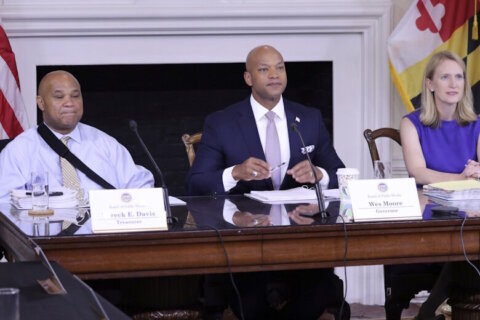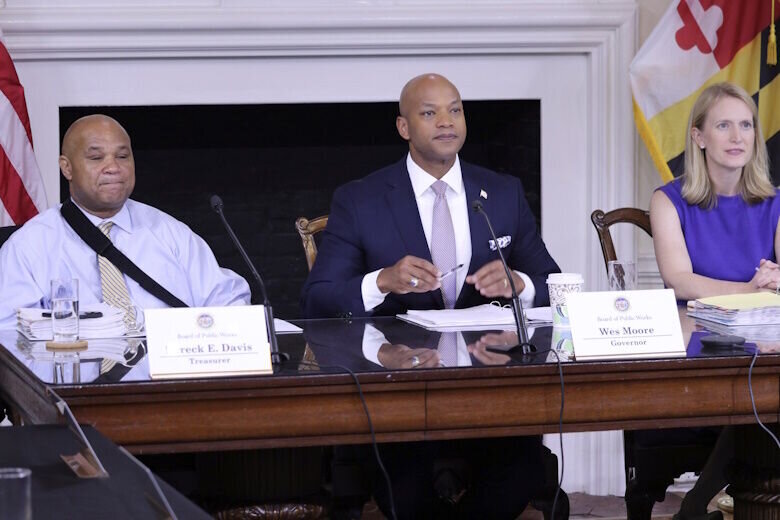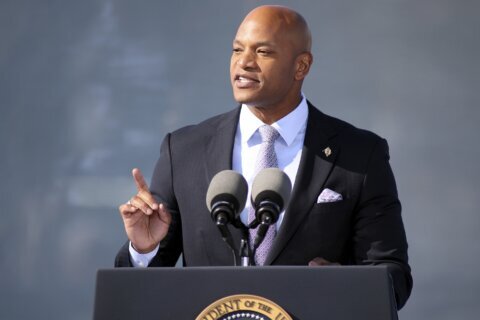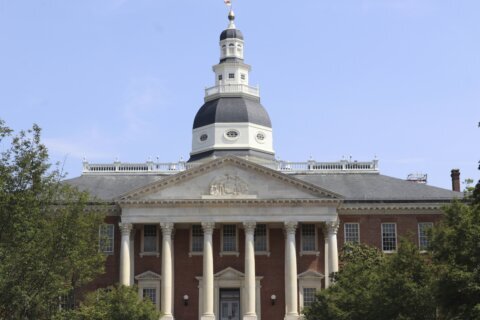
ANNAPOLIS, Md. (AP) — A Maryland board approved $148.3 million in state spending reductions on Wednesday to balance the budget while directing more money to pay for child care and Medicaid — two priorities that Democratic Gov. Wes Moore’s administration hopes will help improve a stagnant state economy.
The Board of Public Works, which Moore chairs, made cuts across a variety of state agencies to address larger-than-expected demand for Medicaid and a state child care program. The board, which also includes Treasurer Dereck Davis and Comptroller Brooke Lierman, can cut up to 25% of the state’s operating budget when the Legislature isn’t in session.
“While it’s never ideal, the reductions that we are advancing today are necessary to ensure that our fiscal stability is going to be sound and to create long-term economic growth for our state,” Moore said.
The governor emphasized that most of the cuts were spread among state agencies. He said that when he took office 18 months ago, his staff realized that the state’s economy had been stagnant for a decade and that “Maryland’s business model was broken.”
“That’s not politics, that’s math,” Moore said. “You cannot have something that continues to watch budgets increase but where you’re continuing to watch an economy stay flat.”
The need for the spending adjustments arose because of larger-than-projected participation in a state program to help pay for child care and higher-than-expected retention of Medicaid participants as Maryland, like other states, has undergone post-pandemic eligibility reviews.
When Moore took office, there were about 24,000 children enrolled in the state’s child care scholarship program. By late 2023, that figure had grown to about 33,000 children. When he prepared the budget for the state’s current fiscal year, it was anticipated that 38,000 to 40,000 children would participate, but as of June, that number already had grown to more than 40,000.
As for Medicaid, Maryland released data last week marking the end of the yearlong redetermination process. Over the 12 months that ended in April, Maryland Medicaid processed 1,540,247 applications to renew coverage, more than 70% of which were approved, the state health department said.
Medicaid enrollment stood at 1,684,462 as of May 31. That’s compared to 1,415,631 prior to the COVID-19 pandemic, an increase of 262,303.
Helene Grady, the governor’s budget chief, told the board that ensuring that eligible Marylanders can access health care and child care affordably are priorities of the governor and the General Assembly to support economic growth by keeping people healthy and enabling more parents to enter the workforce.
She said the reductions focused on redeploying underutilized funds, as well as delaying areas of new or increasing funding.
Maryland Republicans criticized the the board’s decision, describing it as a fund transfer rather than a true budget cut, as the state faces long-term future budget deficits.
“What you will find is a fund transfer and budgeting tricks akin to looking for coins in the couch cushions to make up a significant underfunding of Medicaid created by flawed projections,” Steve Hershey, the Senate minority leader from the Eastern Shore, said in a statement.
Natasha Dartigue, Maryland’s chief public defender, said the cuts would hurt her agency, which she said has been underfunded for decades and is already “in crisis.”
“Every dollar matters,” Dartigue told the board.
Charlotte Davis, executive director of Rural Maryland Council, also spoke out against cuts.
“We feel that our mission fits what you’re trying to do to support the future growth of rural Maryland and Maryland in general,” she said.
Copyright © 2025 The Associated Press. All rights reserved. This material may not be published, broadcast, written or redistributed.








